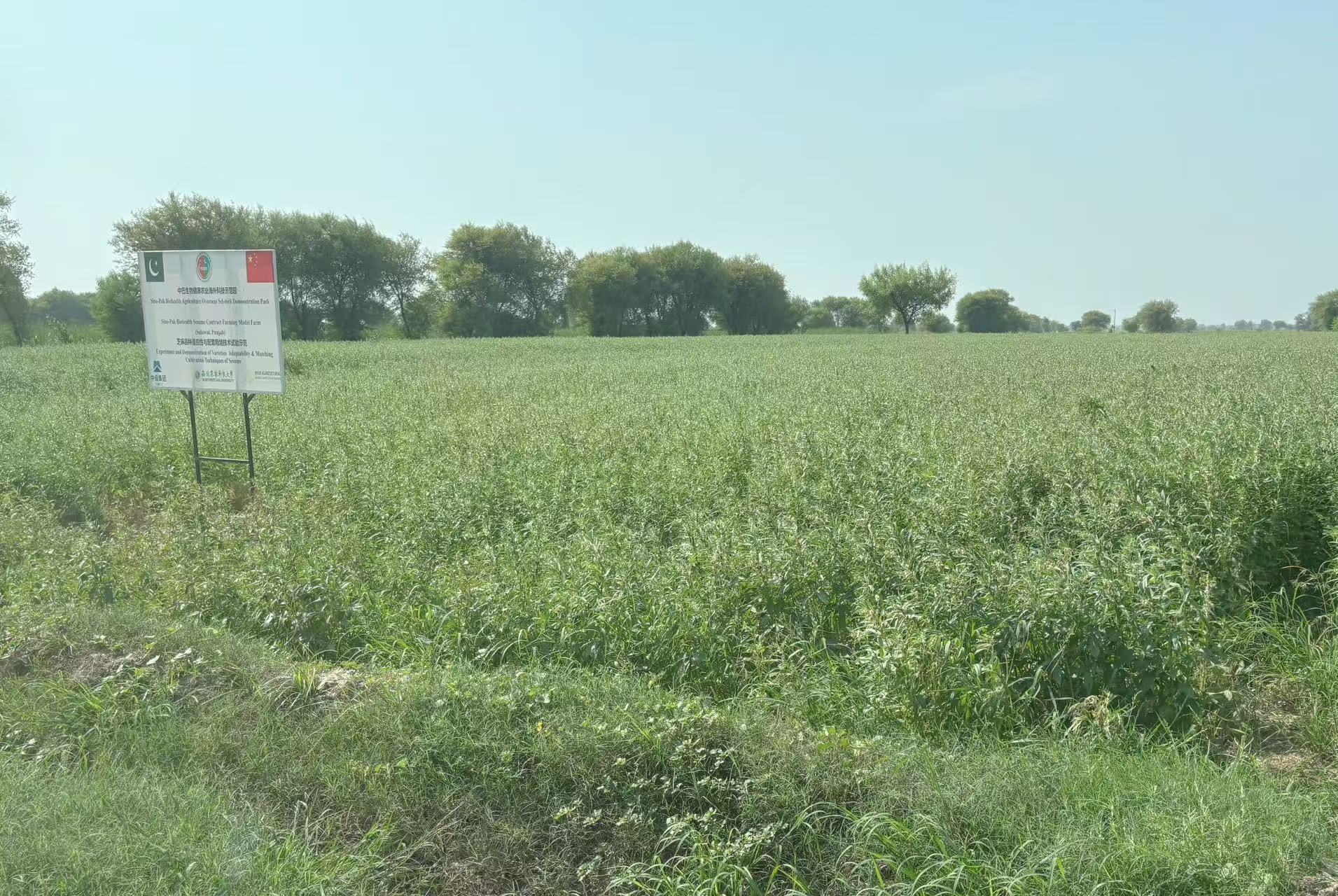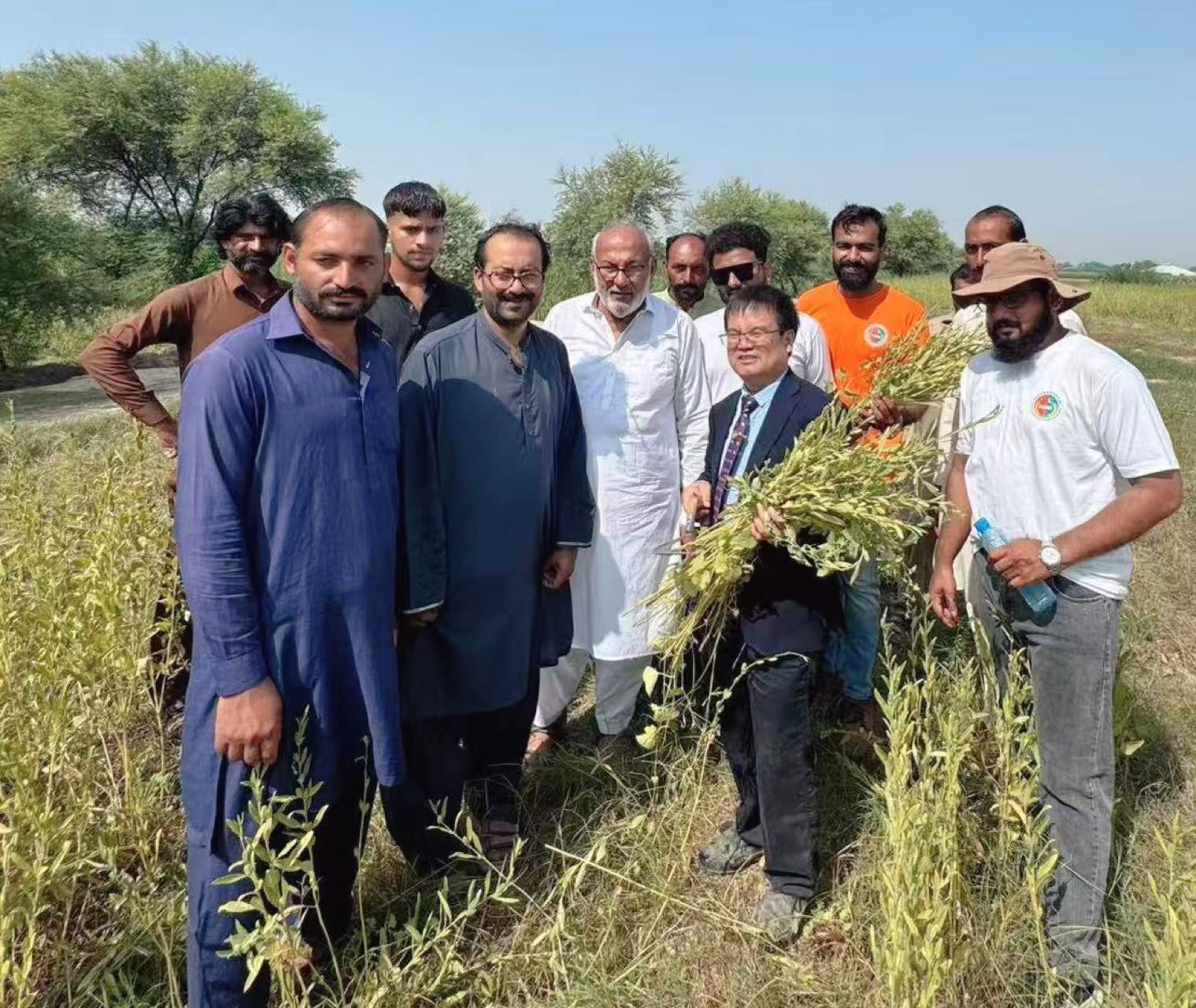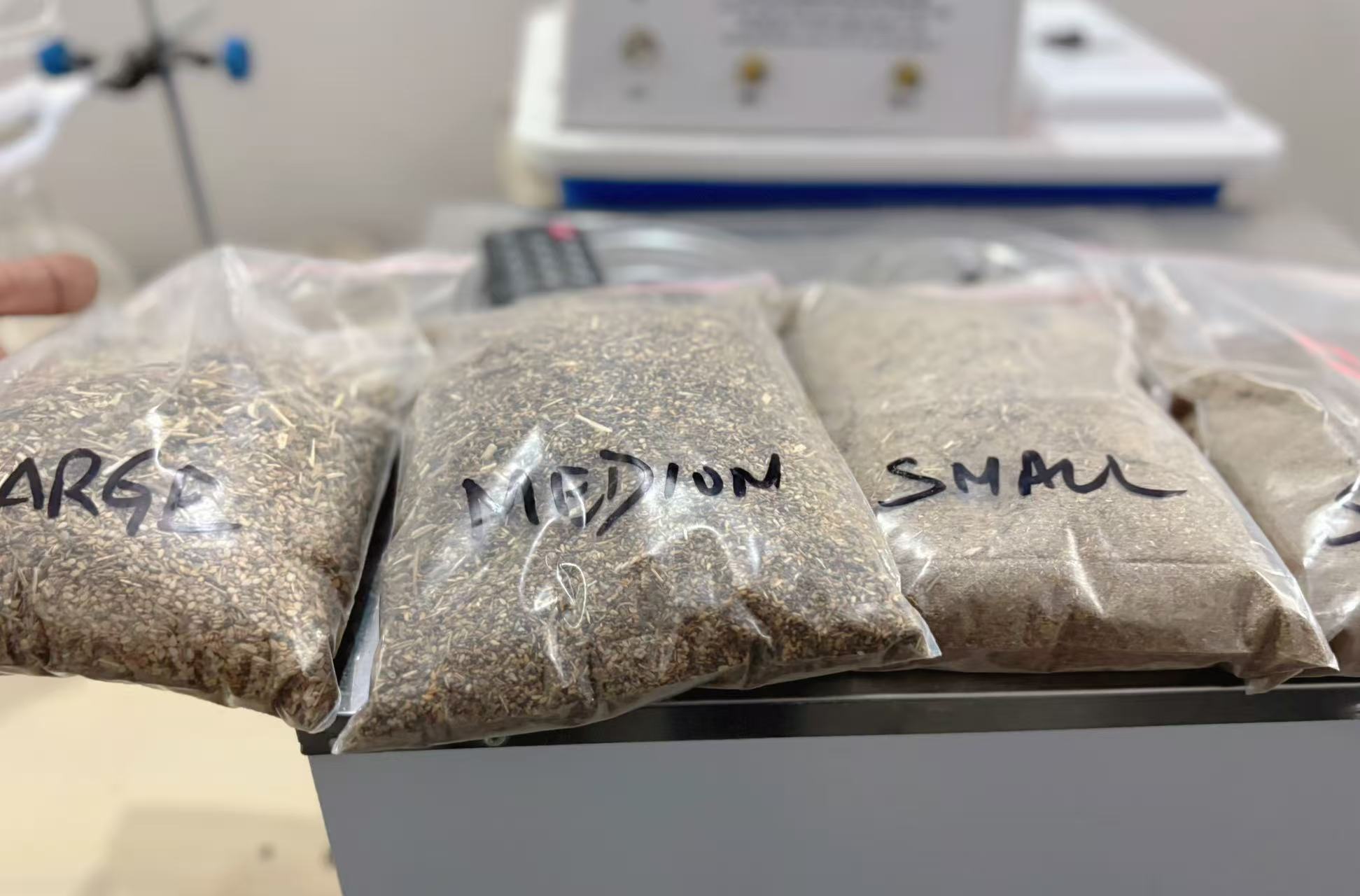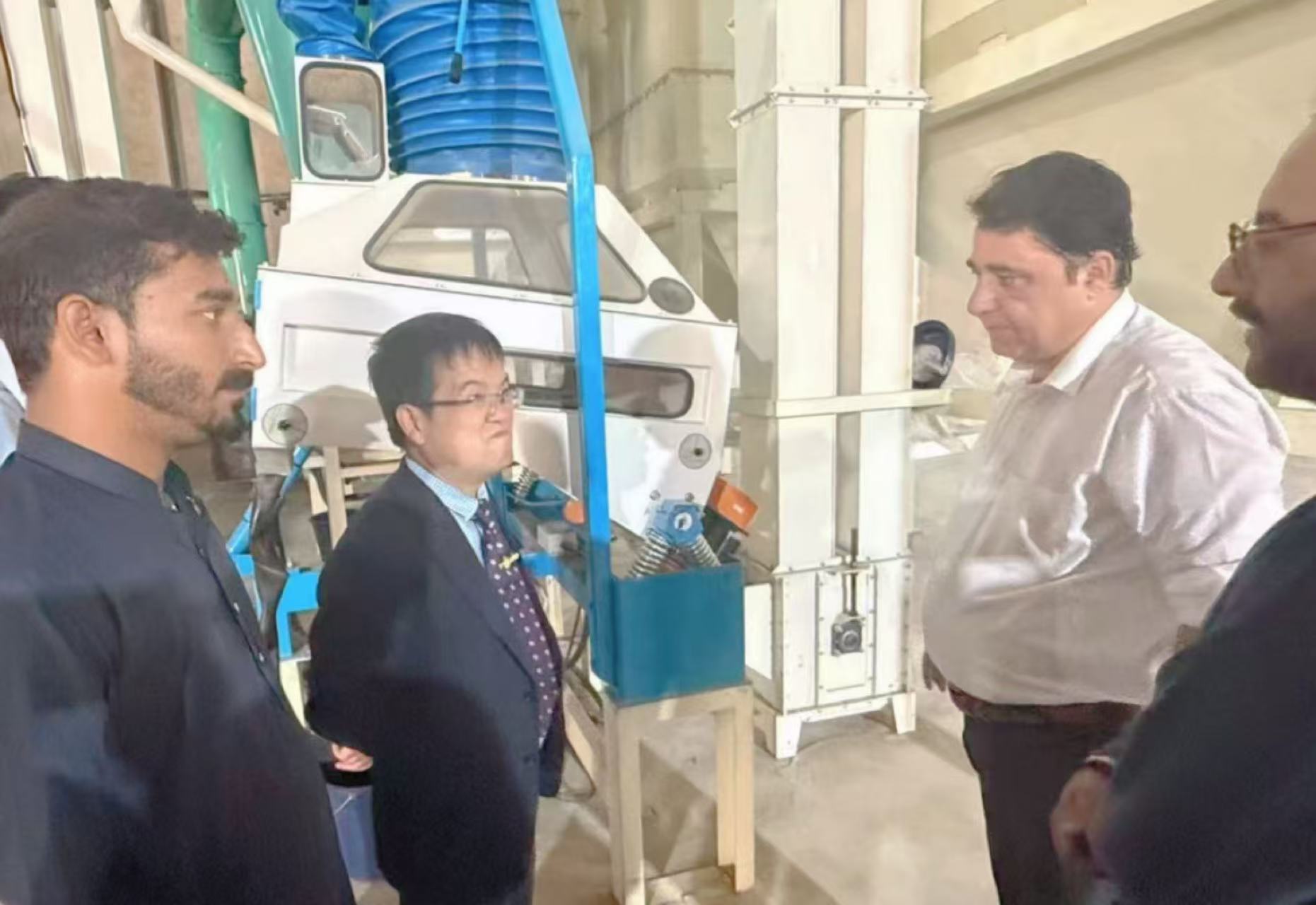By Mahira Qamar
SAHIWAL, Aug 12 (Gwadar Pro)– On August 11, a delegation from the Silk Road Biohealth Agriculture Industry Alliance of Northwest A&F University (NWAFU), arrived in Sahiwal, Punjab Province, to visit the Biohealth Sesame Order Demonstration Farm under the China-Pakistan Biohealth Agriculture (BHA) Overseas Technology Demonstration Park.


Professor Zhang Lixin (R2), Northwest A&F University (NWAFU), are exchanging technology with local people in the sesame field [Photo provided to GP]
The farm was jointly built by China Machinery Engineering Corporation (CMEC), Northwest A&F University, as well as Pakistan's Ayub Agricultural Research Institute.
"Relying on the joint oilseed laboratory established by both parties, we introduced high-quality Chinese sesame varieties and supporting production technologies to the local area. Through experiments, we identified sesame varieties suitable for cultivation in Pakistan and the optimal production parameters. We also developed and published technical standards for bio-healthy sesame production in Pakistan," Professor Zhang Lixin from NWAFU, the project leader, told Gwadar Pro.

Sesame seeds harvested at the demonstration farm [Photo provided to GP]
Furthermore, after systematic study and training, Dr. Ammar, a Pakistani student studying at NWAFU and others have become core technical personnel, Zhang added.
Within the bilateral supply chain, harvested sesame seeds undergo primary processing at CMEC's processing plants, followed by sampling and quality testing in a jointly built lab. Subsequently, qualified products are exported to China for further processing and application in food, pharmaceutical, and industrial sectors. By now the project has established 12 standardized bio-healthy sesame farms, totaling approximately 500 acres. These farms utilize a contract farming model and have contracted with over 120 farmers.
"Last year, the first batch of sesame planted under the contract has exported approximately 3,500 tons to China; by 2025, our goal of processing and exporting 5,000 tons of sesame seeds is expected to be achieved soon, all of which will not only drive increased production, quality, and income for the farm and surrounding small and medium-sized farmers, but will also provide over 500 long-term jobs for the local community." Zhang stated that CMEC and NWAFU are actively exploring the breeding of new varieties and promoting wider dissemination of China's bio-healthy agricultural product production technology across Pakistan.
"The near-term goal of the farm is to gradually expand its area to over 50,000 acres (with a planned yield of approximately 23,000 tons), representing over 5% of Pakistan's total sesame planting area. Currently, the country's total sesame planting area is approximately 1 million acres, with an average annual output of approximately 350,000 to 450,000 tons, but yields fluctuate significantly due to various factors. Last year, due to widespread torrential rains, total production dropped to 310,000 tons," Zhang told reporters. "If advanced technologies are further widely adopted, total production in high-yield years could reach over 500,000 tons, which is also our future goal."

Chinese and Pakistani personnel visited the sesame primary processing factory [Photo provided to GP]
Reporters learned that local sesame varieties are primarily from the TS and TH series, such as TS3, TS5, and TH6. Of the 10 experimental varieties currently introduced to the demonstration farm, four have yields exceeding 130 kg per mu (0.165 acres), with the highest reaching 230 kg.
However, these varieties are only the results of internal university comparative trials; further demonstration trials are needed for actual production. Because annual rainfall, sunlight, and fertilization significantly influence yield and quality in Pakistan, selecting and breeding varieties and supporting technologies adapted to different seasons, as well as developing appropriate technical measures based on weather forecasts, is of great importance.
The three parties are going to continue to carry out online seminars, offline visits and talent training, involving the formulation and release of bio-healthy sesame production technology and quality standards, the cultivation of flood-resistant varieties, special high-efficiency fertilizers, the research and development of biological pesticides and immune preparations, drone spraying, mechanized harvesting, intelligent and innovative management models, and so on and so forth.
"The bio-health industry chain model that connects enterprises, universities and farms will definitely boost bio-health agriculture continue to prosper and develop in Pakistan," the Professor noted.
This article originally appeared on Gwadar Pro.
(Editor: liaoyifan )


